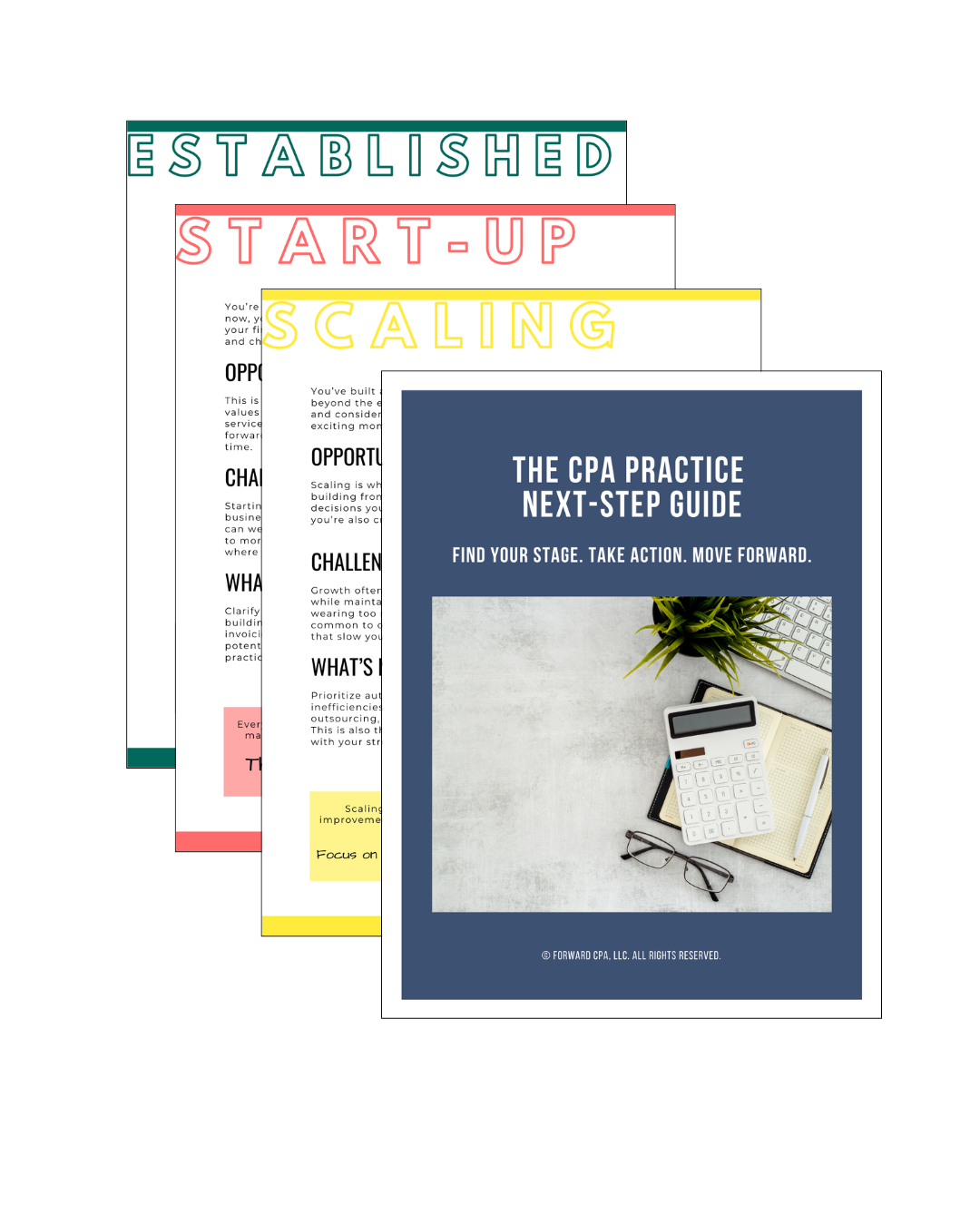How to Set Boundaries as a CPA and Take Control of Your Workload
Mar 25, 2025
CPA Boundaries
For years, I thought being a great CPA meant always being available. I answered client emails late at night, worked weekends without question, and let my workload dictate my life. I convinced myself this was normal - that it was the price of success in public accounting.
But the truth is, without boundaries, you don't control your workload - your workload controls you.
I learned this the hard way. By the time I left public accounting, I was exhausted, overworked, and constantly anxious. I had spent years saying yes to everything, absorbing extra work when staff left, and pushing through endless busy seasons. It wasn't sustainable.
Once I started my own firm, I made a commitment: I would set clear boundaries that protected my time, my energy, and my sanity. And the result? A thriving firm, better client relationships, and a workload that no longer ran my life.
If you're feeling overwhelmed, stuck in the cycle of overwork, or constantly at the mercy of client demands, it's time to set better CPA boundaries and take back control.
#1 Set Clear Office Hours (And Enforce Them!)
One of the biggest mistakes I made early in my career was always being available. Clients knew they could email me at any hour, and I would respond. The problem? This set an expectation that I was always on call.
If you want to control your workload, you have to define when you work. That means setting clear office hours and actually sticking to them.
-
Define your working hours and communicate them to clients upfront.
-
Use an email auto-responder after hours to set expectations.
-
Stop responding to messages outside of those hours - no exceptions.
The first time I ignored a client email after hours, I felt guilty. But guess what? The world didn't end. Setting boundaries around your availability forces clients to respect your time - and it prevents burnout.
#2 Stop Saying Yes to Everything
CPAs are natural problem-solvers, which makes it easy to fall into the trap of saying yes to every request. But not every task is your responsibility, and not every client deserves your time.
Before agreeing to extra work, ask yourself:
-
Is this within the scope of my engagement?
-
Does this align with the services I actually want to provide?
-
Am I being compensated fairly for this work?
If the answer is no, it's time to start saying no. And no, you don't have to justify it or over-explain. A simple, "That falls outside the scope of our engagement, but I'd be happy to discuss additional services," is enough.
Your time is valuable. Protect it.
#3 Use Engagement Letters to Reinforce Boundaries
One of the best ways to set boundaries is to document them in writing. Engagement letters aren't just for legal protection - they're also a tool to prevent scope creep and manage expectations.
Your engagement letter should clearly outline:
-
The exact services you are providing.
-
What is not included in the engagement.
-
Expected response times for client inquiries.
This eliminates confusion and gives you something to refer back to when a client asks for extra work without additional compensation.
If a client consistently pushes past the agreed-upon scope? It may be time to reassess whether they're the right fit for your firm.
#4 Protect Your Time with Smart Scheduling
Another game-changer for taking control of my workload was blocking my time intentionally instead of letting my schedule fill up with client demands.
Here's how I improved boundaries around my calendar:
-
Time Blocking - Set dedicated hours for client work, admin tasks, and deep work.
-
Limit Meetings - Not every client request needs a call; use email or recorded videos instead.
-
Batch similar tasks - Reduce context switching by handling similar work at the same time.
When you plan your schedule in advance, you control how you spend your time instead of reacting to whatever comes your way.
#5 Set Boundaries with Clients (And Stick to Them)
Some clients will test your boundaries - especially if they're used to having unlimited access to you. The key is to set firm limits and reinforce them consistently.
🚫 If a client calls outside office hours → Let it go to voicemail and respond the next business day.
🚫 If a client expects immediate responses → Set expectations in your engagement letter or use an auto-reply system.
🚫 If a client keeps pushing past the agreed scope → Offer additional services at an added cost, or decline the extra work.
You teach clients how to treat you. If you allow them to ignore your boundaries, they will.
Stay firm.
Take Back Control of Your Workload
Setting boundaries isn't about being difficult or unhelpful - it's about protecting your time, energy, and business. When you establish clear limits, you'll find that:
-
Your workload becomes more manageable.
-
Clients respect your time and expertise more.
-
You reduce stress and prevent burnout.
The accounting profession glorifies overwork, but you don't have to play that game. If you're feeling overwhelmed, now is the time to take control.
Because at the end of the day, your firm should work for you - not the other way around.
Your Next Step Forward
Join the newsletter designed to help CPAs take the next best step in building a practice they love, with practical insights, game-changing tools, and quick wins in every email.
We hate SPAM. We will never sell your information, for any reason.


